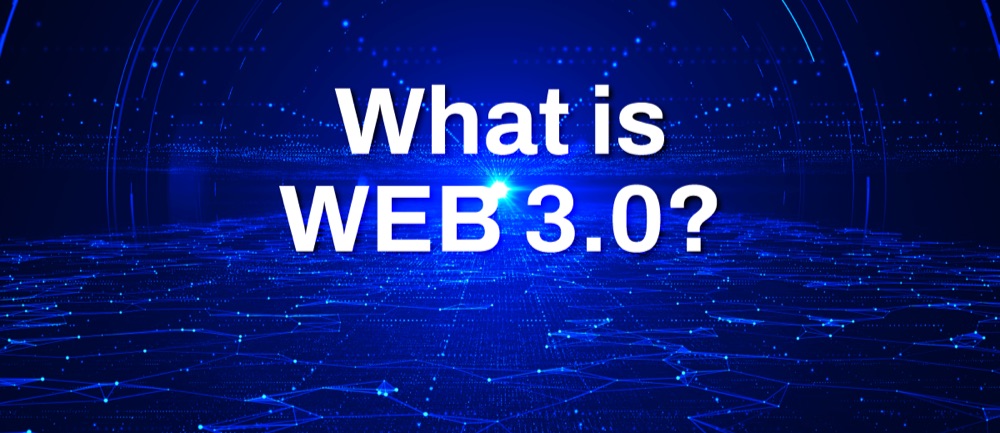
Web3 is Trying to Solve Our Internet Problem
If someone told you that you’d been living your life the wrong way, you’d ask them why.
Then they start to tell you all the problems you didn’t know you had. How would you feel?
Probably not very good, but mostly confused. You go back to living your normal life, but your mind lingers at the prospect there might be more.
That’s basically the philosophy behind Web3. Well, maybe. One thing for sure is they intend to revolutionize the way we use the internet.
What is Web3, Anyway?
To understand why there is Web3, let’s try to understand Web1 and Web2.
Web1 is the genesis of cyberspace – the simplest of times. Your browser was always static and non-judgmental.
There were no flashy pop-ups or scathing remarks. Just bright pages full of useful information.
Libraries, businesses, and government agencies used it to host their databases. Employees and members could access the database but never let anyone know how they felt about it.
Web2 is the internet we know now. A centralized haven of endless content. Gaming, work, music, breakups, politics all take place on a single server.
Every photo you post, every tweet you send, every movie, song, and game you play are all compiled and recorded for corporate use. The ads you see and the articles on your feed are based on the data they collected.
Otherwise, it was completely random that you saw a cat food ad after looking up tips for new cat owners.
If you say something mean, a platform could block you. This can mean not being able to access the app.
For those who live in politically strict countries, some websites may be inaccessible to you. This is because the government controls your internet providers and those guys control what you can and cannot see.
Your smartphone – the most trusted companion – tirelessly informs Google of where you are and what you like. But hey, you almost never get lost so it can’t be that bad.
Web3 says NO to all of the above.
Yes, and that includes the part where you get to stream nonstop content at 500 Mbps, HD movies, Zoom classes, 120 FPS gaming, all of that shenanigans.
On Web3, decentralization is everything. If that meant giving up half the speed, then so be it.
Advocates believe if we could free our data from big corporate platforms, performance quality is but a minor inconvenience. Temporary, in fact.
Web3 has barely gotten past the conceptual stage so we can almost confidently say let’s expect more. Something like a Layer 2 solution to support traffic wouldn’t hurt.
The way it works is simple. If you already know how blockchain works, this would be even easier to explain.
Let’s look at the Ethereum blockchain as one giant virtual machine. It mints tokens, keeps receipts, produces smart contracts, pretty much everything your financial advisor won’t do.
People from around the world sign into the blockchain and use their own network resources to keep the Ethereum machine running.
This, in a way, sort of makes everyone a shareholder of the blockchain.
The same thing applies to Web3. Everyone on the Ethereum network is a part of the internet and control of it is shared among the members. In other words, every participant is a server on their own and there are thousands of servers.
On Web2, if your internet provider’s server goes down for some reason, you’ll lose the connection. If a server on Web3 goes down, well, nothing happens because there are a thousand more.
Here’s a TL;DR table to compare Web1, Web2, and Web3:
| Web1 | Static. Read-only | Easy to use | Decentralized. Non-interactive |
| Web2 | Fast streaming | Interactive content | Centralized. Collects data |
| Web3 | Low performance. Can be slow. | Hard to use | Decentralized. Always on. More privacy. |
Web3 Pros and Cons
Let’s talk about the amazing things Web3 can do.
As your internet becomes decentralized, there’s no one to collect your data. Part of it is because no one really wants to. Everything is recorded on the blockchain so there’s no point in doing the same thing again.
Censorship would be a thing of the past. They’d have to censor the same information on every server.
A social app tries to delete your comment? Not going to happen. A platform wants to take down your post? Nice try.
The things you say will exist forever by the immutability of blockchain and no one will be able to erase them. That’s right, not even you.
What about the not-so-amazing things on Web3?
For starters, information might take a while to travel between servers. We’re used to directly communicating with one big ISP server so the increased buffer might feel a bit overwhelming.
Dispute resolution is a big challenge. Remember how you could call up your ISP support and complain to your heart’s content? Well, not anymore.
We would likely need to implement separate protocols designed for data discrepancy or disagreement between servers, in general.
That would potentially bring more complications to the blockchain and if you’re not tech-savvy enough, you’d probably not want to get into any dispute.
So there we have it – the future of the internet is in the hands of Web3. Okay, not really, but we’re all hoping for great changes to what we have, aren’t we?
As a wise man once said, “an idea doesn’t have to work to be a good idea. But a good idea works.”
What do you think? Is Web3 just an idea or is it going to work?
